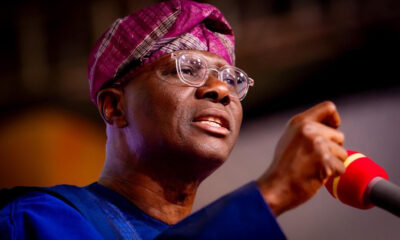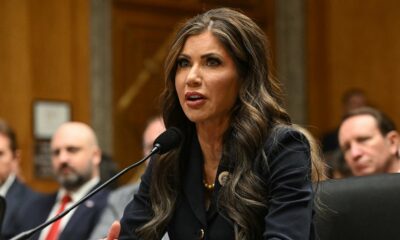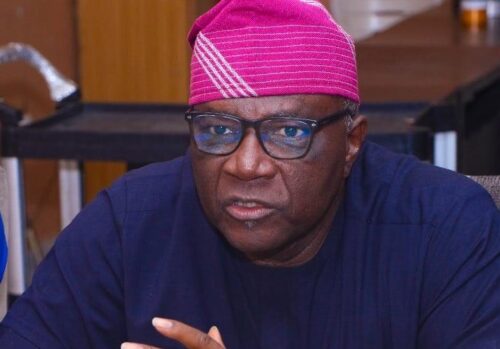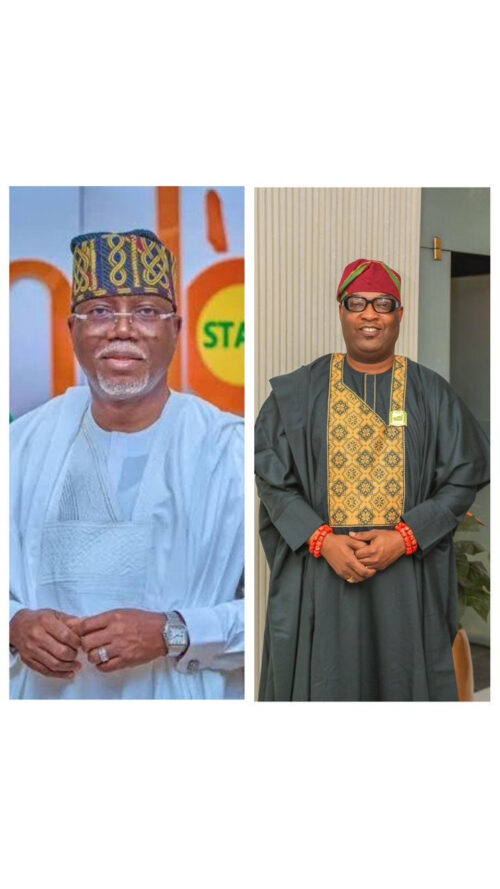The Minister of Defence, Gen. Christopher Musa (retd.), on Sunday disclosed that he was among the intended targets of the recently foiled coup plot against President Bola Tinubu, revealing that the conspirators planned to arrest or shoot him if he resisted.
Musa made the disclosure while speaking as a guest on Politics Today, a Channels Television programme, where he also described the suspects behind the plot as “a bunch of very unserious individuals.”
While admitting that he played a key role in helping security agencies nip the plot in the bud, the former Chief of Defence Staff said he was personally marked for arrest by the plotters.
“I was also a target, I am sure you know. I was supposed to be arrested, and if I refused, I was supposed to be shot,” he said.
“But that’s the job. Anybody who goes into a coup zeroes his mind because he knows if he succeeds, good.
If he doesn’t succeed, whatever consequences come, you are ready for it.”
Musa dismissed the capacity of the suspects to successfully challenge the Nigerian state, saying their actions showed a complete misunderstanding of Nigeria’s democratic history and the strength of its armed forces.
“But again, I think these guys were just a bunch of very unserious individuals that I really don’t know. If you look at the calibre of the individuals, I really don’t know what got into their heads to think that they could take on the armed forces like that,” he said.
He added that even without the intervention of the military, Nigerians would have resisted any attempt to overthrow a democratically elected government.
“What I even said was that even Nigerians would have fought them. Even without the armed forces, Nigerians would have stood against them. Remember how Nigerians fought against the military rule for quite some time. And that’s why Mr. President has always been one of them.
“So now, for them to think they could just wake up one morning and do that in Nigeria, I think something went wrong in there. They need to reset their brains.”
Speaking on the arrests made so far, the Defence Minister said most of those involved had been apprehended, with only “maybe one or two” still at large.
“So far, most of them have been caught. If there’s anyone, maybe one or two. It just started from the colonel himself, who felt disgruntled because he was not promoted. He didn’t meet the marks to be promoted,” he said.
Musa explained that the plot was driven largely by personal grievances, noting that the armed forces’ promotion system is strict and merit-based.
“You know that the armed forces is really very strict about its promotions system. But he didn’t make it. So what he decided to do was probably go around, look at other people that had one issue or the other…with the aim of bringing them in,” he said.
Expressing concern for junior officers allegedly drawn into the plot, Musa said, “My pain is all those young officers who didn’t understand what was going on that he put in this mess. Now they have to face the consequences.
“So everything evolves around him as an individual. But he was just a colonel. I can’t even imagine a colonel ever thinking of doing such a thing.”
The Defence Minister stressed that executing a coup in modern-day Nigeria was virtually impossible, unlike in the past.
“That was in the past. That was Nigeria of yesteryears. It’s impossible,” he said, adding that security agencies relied on verified facts, not speculation, before acting.
“If there’s a situation where you hear that somebody is trying to do something and you walk in, what facts do you have because you are going to go to the courts? If you can’t present it in the courts, then they throw you away. And then you look stupid.”
He said the investigation was thorough and collaborative, involving multiple intelligence agencies to avoid indicting innocent officers.
“Since I was there, I was the one who inaugurated the board. I made sure the board started. We sent them to DIA to do a thorough investigation along with the NIA, DSS, and every other person. So it’s a holistic investigation that was carried out because we didn’t want any innocent person to be indicted,” Musa said.
He dismissed claims that the plot was driven by dissatisfaction with the current administration, insisting it predated Tinubu’s inauguration.
“These things were planned even right before the president took office. So it was a plan they had ahead of him since they knew he was the one who won the election,” he said, describing the development as “quite unfortunate.”
Musa further noted that past coups succeeded only with the backing of top military commanders, a factor completely absent in the current case.
“If you remember, during those days when they had coups, you had to have most of the big boys like the GOCs and service chiefs…You don’t have any of such. They are just very low-ranking individuals that have no access to some of these things,” he said.
“For anybody to want to truncate democracy in this disposition, I think there’s something really wrong with them.”


 BIG STORY3 days ago
BIG STORY3 days ago
 NEWS5 days ago
NEWS5 days ago
 NEWS4 days ago
NEWS4 days ago
 BIG STORY4 days ago
BIG STORY4 days ago
 BUSINESS2 days ago
BUSINESS2 days ago
 NEWS5 days ago
NEWS5 days ago
 ENTERTAINMENT12 hours ago
ENTERTAINMENT12 hours ago
 BIG STORY3 days ago
BIG STORY3 days ago






















